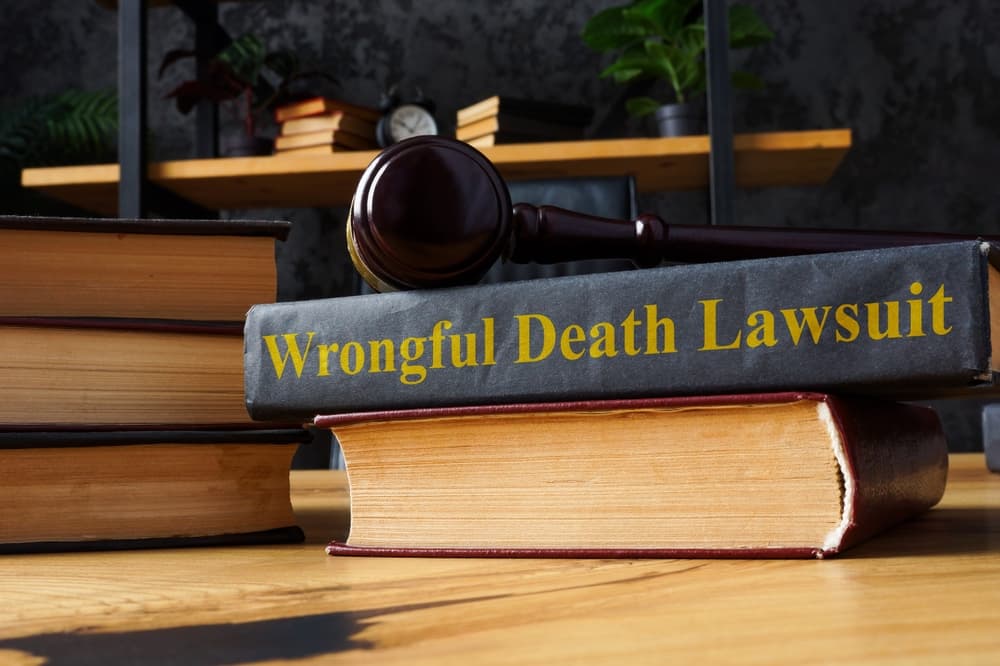
Losing a loved one is always difficult. When that loss happens because of someone else's actions, it can feel even more painful. In these situations, families can file a wrongful death case. But it's important to know that there are time limits for taking legal action. This is called the statute of limitations.
The statute of limitations sets a deadline for filing a wrongful death lawsuit. If you wait too long, you can lose your right to seek justice. That's why it's so important to talk to a wrongful death lawyer as soon as possible after a tragedy. They can explain the deadlines and protect your legal rights.
Every state has its own laws about wrongful death cases. The time limits can be different depending on where you live. In some places, you may have as little as one year to file a lawsuit. Other states give families up to six years. A Williamsport wrongful death attorney will know the exact deadlines that apply to your situation.
Why Deadlines Matter in Wrongful Death Cases
You might wonder why there are time limits at all for wrongful death lawsuits. After all, the pain of losing a loved one doesn't go away after a certain number of years. However, the legal system has reasons for setting these deadlines.
One reason is to ensure evidence stays fresh. As time passes, it can get harder to find witnesses or gather important information about what happened. Physical evidence might be lost or damaged. People's memories can fade too. All of this can make it more difficult to prove a wrongful death case as the years go by.
The statute of limitations also provides some certainty for everyone involved. The person or company responsible for a death isn't left wondering if they might get sued decades later. And families have a clear timeline for deciding whether to take legal action.
Of course, these deadlines can feel unfair when you're dealing with grief or depression. It takes time to process such a huge loss. You may not feel ready to think about a lawsuit right away. That's okay. Just remember that talking to a wrongful death attorney doesn't mean you have to file a case right then. It just helps you understand your options before time runs out.
Exceptions to the Rule
While statutes of limitations are strict in most cases, there are some situations where the court might allow more time. These exceptions don't happen often, but they're worth knowing about.
One possible exception is called "tolling." This means pausing or delaying the statute of limitations clock. It might apply if the person who would file the lawsuit is a minor child or has a mental disability. In those cases, the time limit might not start until they turn 18 or regain mental capacity.
Some states also have a "fraudulent concealment" exception. This can come into play if the person responsible for the death actively tried to hide their involvement. If they destroyed evidence or lied to cover up what happened, the court might extend the deadline.
There's also something called "equitable tolling." This is a legal idea that says it wouldn't be fair to stick to the usual time limit in certain rare situations. For example, if a natural disaster made it impossible to file a lawsuit on time, a court might allow an extension.
It's important to know that these exceptions are not guaranteed and the exceptions are decided on a case-by-case basis. That's another reason why talking to a wrongful death attorney as soon as possible is so valuable. They can help you understand if any exceptions might apply to your situation.
Who Can File a Wrongful Death Lawsuit?

It's also important to know who has the right to file a wrongful death lawsuit. This can affect how the time limit applies.
In most states, immediate family members have the first right to file. This usually includes spouses, children, and parents of the victim. Some states also allow siblings, grandparents, or other relatives to file if there are no closer family members.
Sometimes, the personal representative of the dead person's estate files the lawsuit. This might be a family member or it can be someone appointed by the court.
The rules about who can file can get complicated, especially in blended families or with unmarried partners. A wrongful death lawyer can determine who has the legal right to bring a case in your specific situation.
It's worth noting that even if you're not the person who files the lawsuit, you might still benefit from it. Wrongful death cases often seek damages for all the close family members affected by the loss.
What Happens If You Miss the Deadline?

Missing the statute of limitations deadline can have serious consequences. In most cases, if you try to file a wrongful death lawsuit after the time limit has passed, the court will dismiss your case. This means you lose your chance to seek justice through the legal system.
Even if you have a strong case with clear evidence, the court will usually throw it out if it's filed too late. This might seem unfair, but judges tend to enforce these deadlines strictly. They see the statute of limitations as an important part of ensuring the legal process is fair and efficient for everyone.
That's why it's important not to wait until the last minute to talk to a wrongful death attorney. Even if you're unsure you want to file a lawsuit, getting legal advice early on keeps your options open. A lawyer can explain how much time you have and what steps you need to take to protect your rights.
Remember, preparing a wrongful death case takes time. There's paperwork to file, evidence to gather, and sometimes negotiations to handle before going to court. Starting the process well before the deadline gives you and your lawyer the best chance to build a strong case.
Don't Wait to Seek Legal Advice from a Wrongful Death Lawyer
Losing a loved one is one of the hardest things anyone can go through. It's understandable to feel overwhelmed and unsure about what to do next. The statute of limitations for wrongful death cases is strict in most situations. Once that deadline passes, you can lose your right to seek justice through the courts.
That's why it's so valuable to talk to a wrongful death lawyer as soon as you can after the tragedy. They can explain your rights, help you understand the time limits that apply to your case, and guide you through your options.
Remember, meeting with a lawyer doesn't mean you have to file a lawsuit right away or at all. It just means you're getting the information you need to make informed choices for your family. Many wrongful death lawyers offer free initial consultations, so you can get advice without any obligation. Contact a personal injury lawyer in your area today
